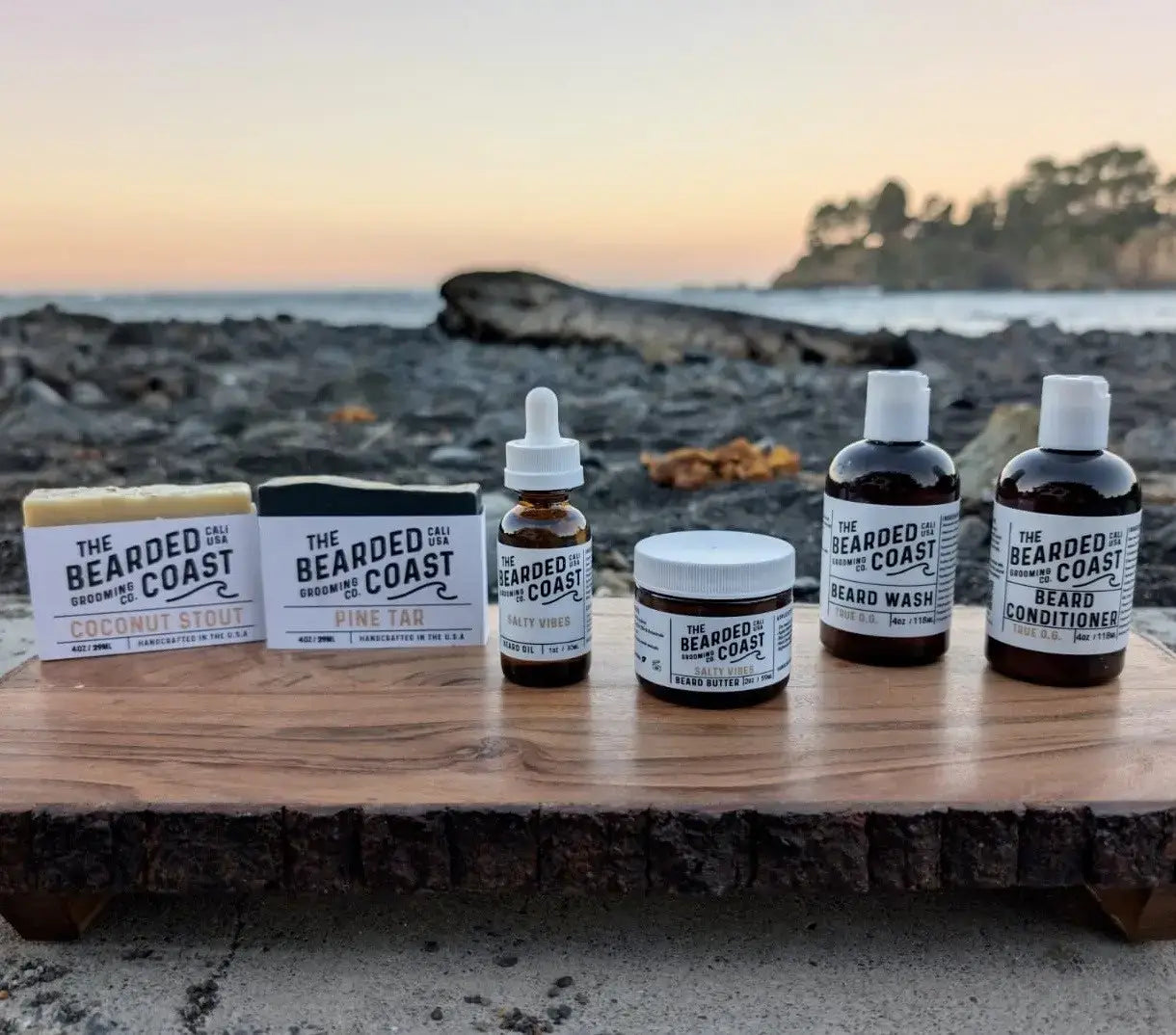
The Real Purpose Behind Beards
Why Do Men Grow Beards, Really?
What’s the deal with beards? Are they just trendy face accessories, or is there something more primal going on? For thousands of years, beards have played a curious role in human evolution, culture, and identity. From cavemen to kings to the modern bearded man scrolling through his grooming routine - beards have always meant something.
So, what is the purpose of a beard? Is it just about looking good, or is nature trying to tell us something? Let’s break it down.
Evolutionary Roots: Beards as a Biological Signal
Beards might not be as random as they look. Evolutionary biologists suggest facial hair has long served as a visual signal - especially in men.
According to a study published in Behavioral Ecology, beards enhance the perception of dominance, social status, and maturity in men. These traits may have evolved to assist in attracting mates or deterring rivals in early human societies.
In simple terms: your beard might be nature’s way of saying, “This guy means business.”

Protection from the Elements
Beyond evolutionary signaling, beards can serve a more functional purpose: protection.
Your facial hair helps:
-
Shield skin from UV rays. Research published in Radiation Protection Dosimetry found that facial hair can offer UV protection factors (UPF) between 2 and 21, depending on beard thickness and angle of sun exposure.
-
Retain warmth. In colder climates, beards act as insulation for the lower face - reducing heat loss from the skin.
-
Reduce exposure to airborne particles. Beards can trap dust, pollen, and microbes before they reach your mouth and nose, though it’s important to wash regularly to prevent buildup and potential re-exposure.
So yeah, your beard’s not just style - it’s low-key survival gear.
Cultural Power and Identity
Throughout history, beards have stood for everything from wisdom to rebellion.
-
Ancient Egypt: Pharaohs wore stylized false beards to signify divine power.
-
Vikings: Beards were symbols of strength and rugged masculinity.
-
Victorian England: Full beards reflected the ideals of manliness and maturity.
-
Today: Beards are a cultural expression - seen on everyone from CEOs to creatives.
Whatever the era, beards reflect who you are or who you want to be.

Psychological Effects: Confidence and Self-Image
Growing a beard often changes how men perceive themselves, not just how others perceive them.
While few studies directly link beard growth to improved confidence, research from Frontiers in Psychology and similar journals supports that facial hair enhances perceptions of masculinity and maturity - factors that can contribute to positive self-image and identity.
A beard can:
-
Add definition to the jawline.
-
Help men feel more aligned with personal or cultural ideals of masculinity.
-
Serve as a form of self-expression, bolstering confidence.
Bottom line? Your beard may be good for your face - and your mindset.
Modern Grooming: The Rise of Beard Culture
Beards are no longer left to chance. Today’s grooming culture treats beards as carefully maintained assets, not afterthoughts.
At Bearded Coast, we know that beard care is more than routine - it’s ritual. Using nourishing, naturally scented products like Carpe Diem Beard Oil or Dark and Stormy Beard Butter keeps your beard soft, flake-free, and healthy-looking.
Modern grooming isn’t just for looks - it promotes beard hygiene, improves skin health underneath, and helps tame unruly growth.
And if you're rocking a beard in the heat or dealing with dry air, True O.G. Beard Conditioner helps lock in moisture and keep the beard game strong.
Not All Beards Are Built the Same
Not every man can grow a thick, full beard - and that's down to genetics.
Facial hair growth depends largely on how your body responds to testosterone and dihydrotestosterone (DHT). While most men have similar levels of these hormones, genetic sensitivity to them determines how much, how fast, and how full your beard grows.
Patchy beard? Here’s what helps:
-
Patience and consistency.
-
Styling your beard to suit your natural growth pattern.
-
Daily grooming with oils like Carpe Diem Beard Oil to promote healthier hair and skin.

What Your Beard Says About You
Beards often shape first impressions. Multiple studies show that people associate facial hair with:
-
Maturity
-
Responsibility
-
Strength
-
Competence
These associations can vary culturally, but in many settings, a well-groomed beard projects confidence and authority.
In fact, in professional settings, a neat beard is increasingly seen as a sign of intentional self-care - rather than something to be shaved away.
Final Thoughts: Why Beards Really Matter
Beards aren't just there to make you look good - they serve a purpose across biological, psychological, and cultural domains:
-
They signal health and masculinity.
-
They offer practical protection.
-
They shape identity and self-perception.
-
And they carry millennia of meaning on your chin.
Whether you're cultivating a Viking mane or keeping things stubbly and sleek, your beard tells a story. Make it a good one - with the right care, confidence, and commitment.
And if your beard’s already part of your identity, it deserves the best. Start with something classic like Dapper Dude Beard Oil or go bold with Carpe Diem Beard Butter.
